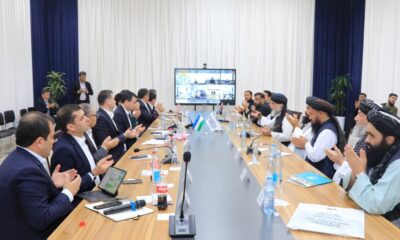Business
China, Afghanistan, Pakistan, Nepal agree to jointly fight COVID-19
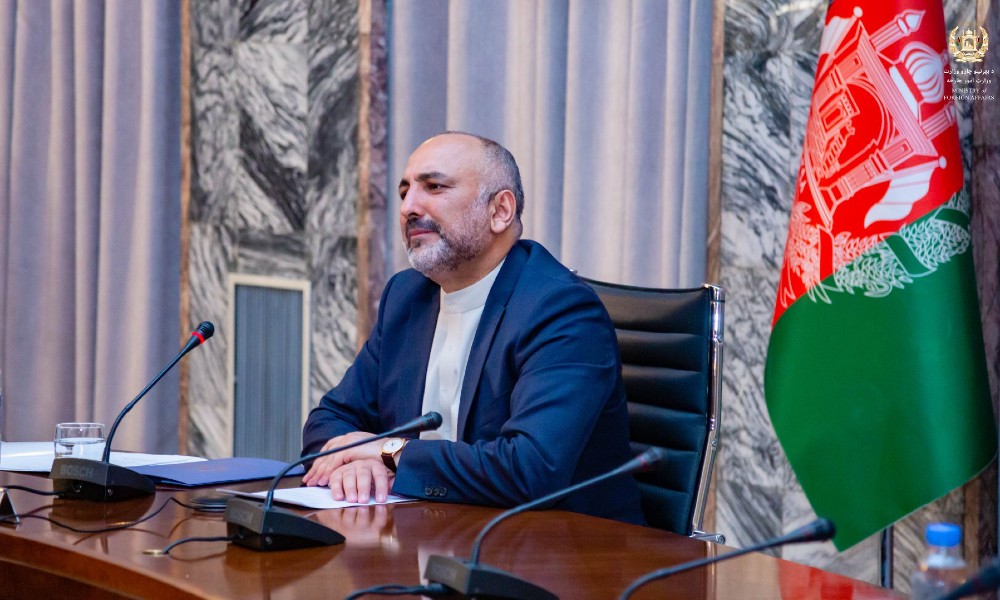
China, Pakistan, Afghanistan and Nepal have agreed to work together to strengthen cooperation and boost economic recovery during their fight against the COVID-19 pandemic.
The agreement was reached during a video conference on Monday night between Afghanistan’s Acting Foreign Minister Haneef Atmar, China’s State Councilor and Foreign Minister Wang Yi, Pakistan’s Foreign Minister Shah Mahmood Quresh and Nepal’s Foreign Minister Pradeep Kumar Gyawali.
وزرای خارجه افغانستان، چین، پاکستان و نیپال در جریان اجلاس چهارجانبه خویش روی همکاری صحی، اقتصادی و تامین آتش بس بشردوستانه در افغانستان تاکید نمودند.@Granhewad pic.twitter.com/oPsXFC4GrG
— MFA Afghanistan 🇦🇫 (@mfa_afghanistan) July 27, 2020
During the conference, the ministers discussed ways to boost cooperation in their countries’ fight against coronavirus and ways to boost economic recovery in light of the pandemic, the Associated Press of Pakistan reported.
Wang Yi said that as a neighbor and partner, China stands ready to continue to work with Afghanistan, Pakistan, and Nepal to overcome difficulties, safeguard people’s health, promote the resumption of work and production and enhance people’s livelihood until the pandemic is over.
The ministers from Afghanistan, Pakistan and Nepal said the three sides are willing to deepen cooperation with China to fight COVID-19, ensure the flow of trade and transport corridors, facilitate people-to-people and trade connection, build a “silk road of health” and community of a shared future for humanity.
According to the Associated Press of Pakistan, the foreign ministers also stressed the importance of promoting the resumption of key cooperation projects and expanding new areas of digital cooperation.
More efforts are needed to promote the joint efforts of the Belt and Road and explore ways to synergize the China-Pakistan Economic Corridor (CPEC) and the Trans-Himalayan Multi-Dimensional Connectivity Network, the foreign ministers said.
Wang Yi said: “We should support the international system with the United Nations at its core and the international order based on international law, and safeguard the common interests of developing countries.”
Business
Afghanistan and Uzbekistan emphasize expanding economic and trade cooperation
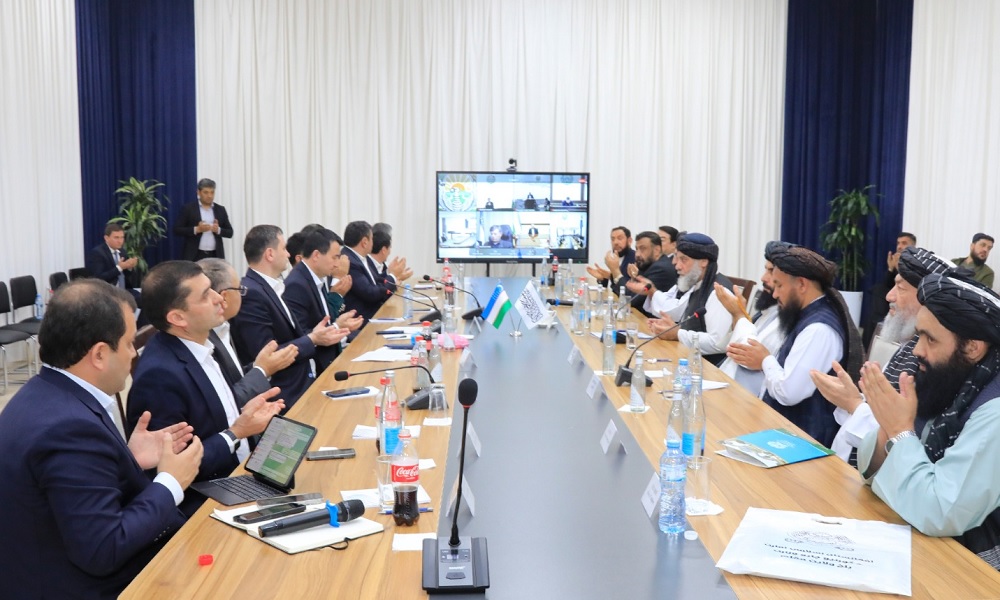
Nooruddin Azizi, Minister of Industry and Commerce of the Islamic Emirate of Afghanistan (IEA), during his official visit to Termez, Uzbekistan, met with Jamshid Khodjayev, Deputy Prime Minister of Uzbekistan, to discuss expanding bilateral economic ties.
The meeting was attended by Mohammad Yousuf Wafa, Governor of Balkh, Abdul Ghaffar Bahr, Afghan Ambassador to Tashkent, and several representatives from Afghanistan’s private sector. The two sides held extensive talks on enhancing trade relations, increasing trade volumes, expanding transit routes, removing trade barriers, and promoting joint economic initiatives.
Minister Azizi emphasized the growing partnership between the two countries and stressed the need to accelerate the implementation of agreements while providing greater support and facilities for traders and investors.
Deputy Prime Minister Khodjayev welcomed the Afghan delegation, highlighting the interest of Uzbek investors in sectors such as agriculture, mining, transport, infrastructure, and health. He also announced Uzbekistan’s readiness to deploy technical teams to support the execution of joint projects.
Azizi expressed Afghanistan’s full commitment to cooperating on shared economic initiatives, while representatives from the Afghan private sector shared their proposals, emphasizing the importance of closer collaboration between the two countries’ private sectors.
The meeting also included participation from Uzbekistan’s Ministers of Transport, Agriculture, Energy, and Health, the First Deputy Minister of Foreign Affairs, and several provincial governors, who joined online.
Business
Rail transport from Iran to Afghanistan surges 17-fold
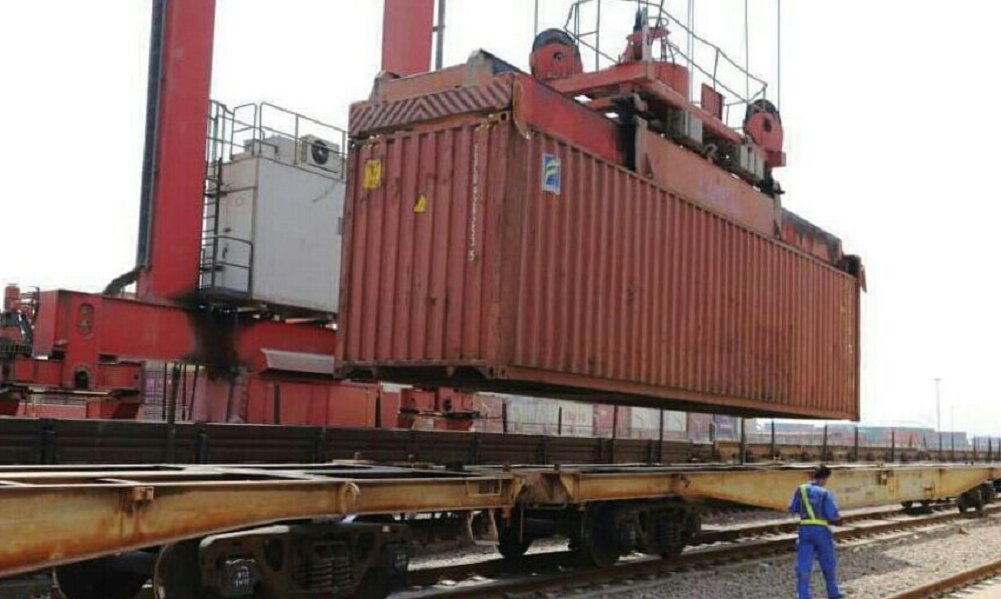
Rail freight between Iran and Afghanistan has increased 17-fold during the 1404 solar year, underscoring a sharp rise in cross-border trade and transit activity, Iranian officials say.
Shahryar Naqizada, Director General of Foreign Trade for Iran’s Railway, told state news agency IRNA that between March 2025 and February 2026, some 650,000 tons of goods were transported to Afghanistan by rail.
Of that total, approximately 150,000 tons consisted of transit cargo — goods originating in third countries and routed through Iran before entering Afghanistan.
The surge reflects Tehran’s broader push to strengthen regional connectivity and position itself as a key trade corridor linking Central Asia to international markets.
Rail links between the two neighbors have become increasingly important as Afghanistan seeks alternative trade routes and more cost-effective import channels.
A major driver of this growth is the Khaf–Herat railway line, which connects northeastern Iran to western Afghanistan and has gradually expanded commercial operations in recent years.
The line reduces transport costs and transit times compared to road freight, while also improving reliability for bulk commodities such as construction materials, fuel, food products, and industrial goods.
Looking ahead, Naqizada said Iran aims to move two million tons of cargo through the Shamtigh border crossing in the 1405 solar year (2026–2027), calling the target achievable given current momentum.
The increase in rail shipments comes amid expanding economic engagement between the two countries, including discussions on infrastructure investment, transit cooperation, and agricultural trade.
Analysts say improved rail connectivity could further integrate Afghanistan into regional supply chains, particularly if complementary customs and logistics systems are strengthened on both sides of the border.
Business
Iran looks to expand economic ties with Afghanistan through contract farming

Iran is exploring ways to deepen economic engagement with Afghanistan, focusing on contract farming and trade, as discussions continue over potential formal recognition of the Islamic Emirate of Afghanistan (IEA) government, a senior Iranian business official said.
According to Iran News Daily, Mahmoud Siadat, head of the Iran–Afghanistan Joint Chamber of Commerce, said recognition of the Islamic Emirate of Afghanistan would boost investor confidence and facilitate long-term projects, including rail links connecting Iran to China via Afghanistan.
While no formal recognition has been confirmed, Siadat noted that bilateral relations have steadily improved.
Iran exports over $3 billion in goods and services annually to Afghanistan, including technical and engineering services, while Afghan exports to Iran remain limited at around $100 million.
Siadat highlighted agriculture as a key growth area, with plans for contract farming where Iranian firms would provide technology, expertise, and guaranteed purchase agreements for Afghan crops and livestock.
“Instead of importing legumes from Canada, we can source them from Afghanistan,” he said, noting that structured agricultural cooperation could benefit both countries.
Remittances from Afghans working in Iran, he added, further underline the strong economic ties between the neighbors.
Even without formal recognition, trade remains robust, but Siadat emphasized that a clear diplomatic framework could unlock more investment and strategic projects.
-

 Latest News5 days ago
Latest News5 days agoRussia estimates up to 23,000 terrorists present in Afghanistan
-

 Latest News4 days ago
Latest News4 days agoIEA rejects Russia’s claims of foreign militants in Afghanistan
-
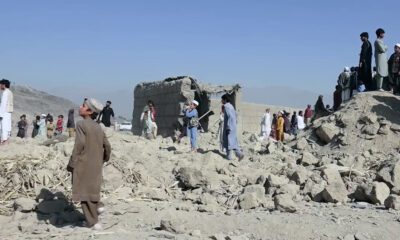
 Latest News5 days ago
Latest News5 days agoUNAMA reports civilian casualties from Pakistani airstrikes in Afghanistan
-

 International Sports4 days ago
International Sports4 days agoAFC Champions League Elite gears up for Round of 16 as league stage concludes
-

 Sport3 days ago
Sport3 days agoRichard Pybus appointed as head coach of Afghanistan’s national cricket team
-

 Latest News5 days ago
Latest News5 days agoUK’s Reform party pledges visa ban affecting Afghanistan and five other states
-

 World5 days ago
World5 days agoMexican military kills cartel boss ‘El Mencho’ in US-backed raid
-

 World2 days ago
World2 days agoIndia’s Modi backs Israel in address at Israeli parliament












